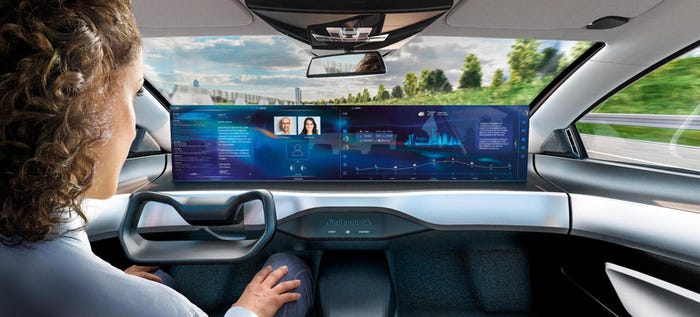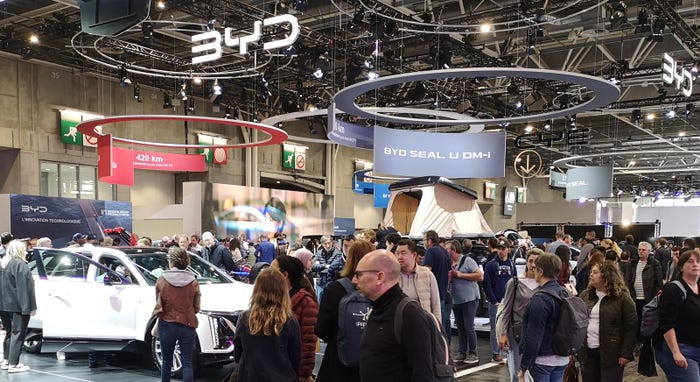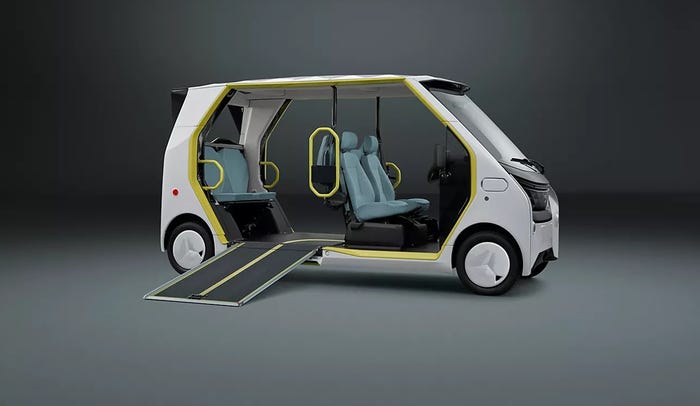
Car dealer Wes Lutz says it’s been years since his service department made serious money doing transmission work, once a pricey repair.
Today’s transmissions are much more reliable and durable than before, which is why fixing one no longer is a jackpot job.
As the automotive world transitions to the electric-vehicle age, some industry observers predict it will hurt service department revenues because EVs are less complicated and contain fewer parts than cars with internal combustion engines.
But Lutz, the owner of Xtreme Chrysler, Jeep and Ram in Jackson, MI, isn’t wringing his hands.
His service department’s revenue today comes mainly from work involving tires, brakes, suspensions, alignments and electrical systems.
And what’s on EVs? “Tires, brakes, suspensions, steering systems and electrical systems,” Lutz notes.
In some ways, the EV market growth could be a boon for franchised dealers, says 
Liesl Larouche
Liesl LaRouche (left), senior manager-strategic alliances at RevolutionParts, an online auto parts and accessories company.“Regardless of how this develops, we’ll see changes that will affect fixed operations,” she says of the shift from vehicles powered by engines to ones powered by batteries.
But because of the high level of automotive-technician expertise at franchised dealerships, “dealers can maintain that competitive edge even as we progress to EVs,” she says during a webinar, “How the EV Rise Will Impact Fixed Operations and How to Prepare for It.” The National Automobile Dealers Assn. put on the program.
“It’s time for dealers to raise their hands and say, ‘We know about this,’” LaRouche says of EV expertise.
Public perception is that EVs require less maintenance and repairs, says webinar co-participant Mike Rich (below left), a RevolutionParts vice president. “The perception is EVs are more reliable. I’m not sure that’s true, but it is a perception.”

mike rich
He calls for “a shift in fixed operations when thinking about EVs, because there are fewer maintenance opportunities compared with ICE vehicles.” But he adds, “There is a great opportunity for dealers to position themselves as EV specialists”In a digital poll of webinar attendees, 85% say they are concerned that the impending proliferation of EVs will affect the number of dealership repair orders.
LaRouche says that calls for a change in dealer marketing strategy. That includes engaging more with consumers, online or in person.
“Most independent shops are not ready for EVs,” she says. “It gives dealers a chance to capture that mind share.”
Texas dealer John Luciano, a certified auto technician himself, says his store’s younger mechanics seem upbeat about working on EVs.
“They think it is really cool. They are into it,” says the dealer principal of Street Volkswagen in Amarillo.
Conversely, some of his veteran technicians, who have worked on internal combustion engines for their entire careers, aren’t particularly interested in learning the ins and outs of EVs. “They say, ‘Get someone else to go to that class.’”
LaRouche says, “Some veteran technicians are adapting to the new technology. But EVs won’t be for every technician. There will always be older technicians who don’t want to change.” That said, “Dealers should offer the right training.”
Here’s what she and Rich say dealership service departments can do to plug into the EV age:
Invest in EV equipment, including that which allows for the refurbishment of EV and hybrid-electric batteries, which can then be resold.
Service EVs across all brands, and then market that inclusiveness.
“Become EV specialists before someone else does,” Rich says, “This is a real chance for dealerships to become the experts.”
All-in with General Motors’ ambitious EV initiative is Whitney Yates Woods, dealer principal at Yates Buick GMC in metro Phoenix.
Her store is investing in EV-related equipment, charging stations and additional auto technician training “for our soon-to-be EV specialists,” she says.
Right now, no one can predict with certainty exactly how much EVs will affect dealership service department revenues.
“Maybe it will be a little less,” Lutz says. “But it won’t be crash-and-burn.”
About the Author
You May Also Like



.jpg?width=700&auto=webp&quality=80&disable=upscale)

